Angelo Maria Ripellino | |
|---|---|
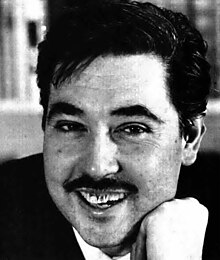 | |
| Born | 4 December 1923 Palermo, Italy |
| Died | 21 April 1978 (aged 54) Rome, Italy |
| Occupation | Writer |
Angelo Maria Ripellino (4 December 1923 - 21 April 1978) was an Italian translator, poet, linguist and academic.
Angelo Maria Ripellino | |
|---|---|
 | |
| Born | 4 December 1923 Palermo, Italy |
| Died | 21 April 1978 (aged 54) Rome, Italy |
| Occupation | Writer |
Angelo Maria Ripellino (4 December 1923 - 21 April 1978) was an Italian translator, poet, linguist and academic.
Born in Palermo, the son of a high school professor, in 1945 Ripellino graduated in Slavistics at the University of Palermo. [1] In 1947 he enrolled the filmmaking courses at the Centro Sperimentale di Cinematografia; the same year he married Ela Hlochova, a Czech student of Italian literature he had known during a 1946 study travel in Prague, who would who would become his closer collaborator. [1]
Active as a theatre critic and a poet since 1940, after his university degree he focused his works on translations, critical essays and literary history books about Russian, Polish and Czech-Slovak literature. [1] Among Ripellino's major works are Poesia russa del Novecento ("Russian Poetry of the 20th Century", 1954), Majakovskij e il teatro russo d’avanguardia ("Majakovsky and Russian avant-garde theatre", 1959), Magic Prague (Italian:Praga magica, 1973). [1] He had a key role in popularizing several Russian authors to the Italian public, notably Boris Pasternak and Alexander Blok. [1]
In 1965 he won the Viareggio Prize with Il trucco e l’anima. I maestri della regia nel teatro russo del Novecento ("The Trick and the Soul. The masters of stage direction in 20th-century Russian theatre"). [1] He authored the Slavic theatre section of the Encyclopedia of Performing Arts . [1] He collaborated with several important publications, including Corriere della Sera and L'Espresso , and was consultant for Russian literature for Einaudi publisher. [1] [2] Ripellino also had an important academic career, first as a lecturer of Slavic philology and Czech language at the University of Bologna, and later as professor of Russian language and literature and Czech-Slovak literature at the Sapienza University of Rome. [1]
Ripellino suffered from tuberculosis from early age and underwent a pneumectomy. He died because of the consequences of a cardiovascular crisis in 1978. [1]
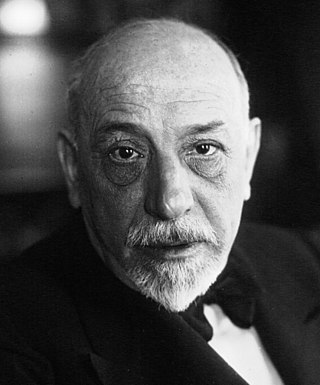
Luigi Pirandello was an Italian dramatist, novelist, poet, and short story writer whose greatest contributions were his plays. He was awarded the 1934 Nobel Prize in Literature for "his almost magical power to turn psychological analysis into good theatre." Pirandello's works include novels, hundreds of short stories, and about 40 plays, some of which are written in Sicilian. Pirandello's tragic farces are often seen as forerunners of the Theatre of the Absurd.

Dario Bellezza was an Italian poet, author and playwright. He won the Viareggio, Gatto, and Montale prizes.

Lorenzo Ferrero is an Italian composer, librettist, author, and book editor. He started composing at an early age and has written over a hundred compositions thus far, including twelve operas, three ballets, and numerous orchestral, chamber music, solo instrumental, and vocal works. His musical idiom is characterized by eclecticism, stylistic versatility, and a neo-tonal language.

Raffaele Viviani was an Italian author, playwright, actor and musician. Viviani belongs to the turn-of-the-century school of realism in Italian literature, and his works touch on seamier elements of the lives of the poor in Naples of that period, such as petty crime and prostitution. Critics have termed Viviani "an autodidact realist", meaning that he acquired his skills through personal experience and not academic education.
Giorgio Bàrberi Squarotti was an Italian academic, literary critic and poet. He taught at the University of Turin from 1967 until his death in 2017. He was considered to be one of the most important literary critics of his time.

Arnoldo Foà was an Italian actor, voice actor, theatre director, singer and writer. He appeared in more than 130 films between 1938 and 2014.
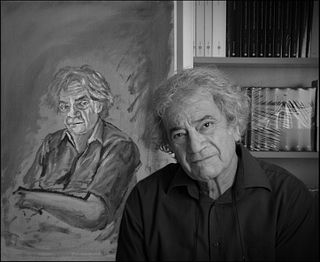
Beppe Costa is an Italian poet, novelist and publisher.
Marco Betta is an Italian composer.
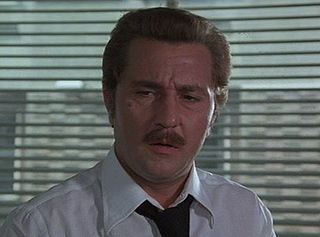
Giuseppe Caruso, best known as Pino Caruso, was an Italian actor, author and television personality.
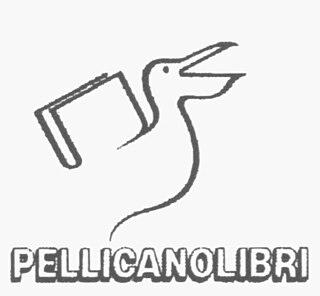
The Pellicanolibri editions is a publishing house founded in 1976 in Catania by the poet and writer Beppe Costa, with the specific intent to highlight authors and discover forgotten or unknown youth.
Domenico Picciché, is an Italian pianist, composer and jurist.

The Ferocious Saladin is a 1937 Italian "white-telephones" comedy film directed by Mario Bonnard and starring Angelo Musco, Alida Valli and Lino Carenzio. The film was made at Cinecittà in Rome. On 28 April 1937, Benito Mussolini visited the newly completed studio. Along with the historical epic Scipio Africanus, this was one of the films he saw being made. The film, a vehicle for the Sicilian comedian Angelo Musco, is about an unsuccessful old comedian forced to find another work. While he is selling cakes in a theatre, the audience discover the highly sought-after collectible cards of "The Ferocious Saladin". Inspired by the event, the comedian sets up a successful comic piece on stage.

Anton Michailovič Milenin is a Russian theatre actor, director and teacher who has worked in Italy and Russia for more than fifteen years, rector of UNIVERSAL ACADEMY OF HERMENEUTICS.
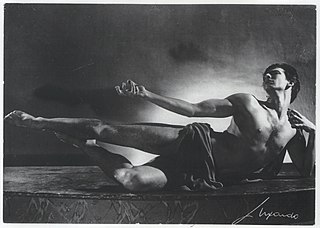
Guido Lauri was an Italian dancer, actor, choreographer, ballet master, company director.
Marilyn: Scenes from the '50s in two acts, is an opera by Lorenzo Ferrero set to a bilingual libretto by Floriana Bossi and the composer. The text consists of a collection of fragments taken from original political, social and cultural documents and has two different linguistic levels: English for the sung parts, and the language of the country in which the performance takes place for the spoken parts.

Sebastiano Biancardi, known by the pseudonym Domenico Lalli, was an Italian poet and librettist. Amongst the many libretti he produced, largely for the opera houses of Venice, were those for Vivaldi's Ottone in villa and Alessandro Scarlatti's Tigrane. A member of the Accademia degli Arcadi, he also wrote under his arcadian name "Ortanio". Lalli was born and raised in Naples as the adopted son of Fulvio Caracciolo but fled the city after being implicated in a bank fraud. After two years wandering about Italy in the company of Emanuele d'Astorga, he settled in Venice in 1710 and worked as the "house poet" of the Grimani family's theatres for the rest of his career. In addition to his stage works, Lalli published several volumes of poetry and a collection of biographies of the kings of Naples. He died in Venice at the age of 62.

Franco Pappalardo La Rosa is an Italian journalist, literary critic, and writer. He graduated from Turin university. He has lived in Turin since 1963. He contributed to cultural pages of Giornale del Sud, L'Umanità and Gazzetta del Popolo, and to many dictionaries, as Dizionario della Letteratura Italiana, Grande Dizionario Enciclopedico-Appendice 1991 and Dizionario dei Capolavori. Nowadays he contributes to many literary magazines, as Hebenon, Chelsea and L'Indice. He edited the publication of some works written by contemporary Italian writers, as Stefano Jacomuzzi, Giorgio Bàrberi Squarotti, Emanuele Occelli, Francesco Granatiero and Angelo Jacomuzzi. He took part in National and International Conferences on figures and aspects of contemporary poetry and fiction. He edits I Colibrì, fiction library between journalism and literature. He is founding member and member of the Board of Governors of the International Association “Amici di Cesare Pavese”.
Francesco Orlando was an Italian literary critic, essayist and university professor specialized in French literature.

Jürgen Maehder is a German musicologist and opera director. He discovered Franco Alfano's original version of the finale for the third act of Puccini's Turandot. He has lectured and staged opera internationally.

Ettore Lo Gatto was an Italian linguist, literary historian, translator, critic and academic.